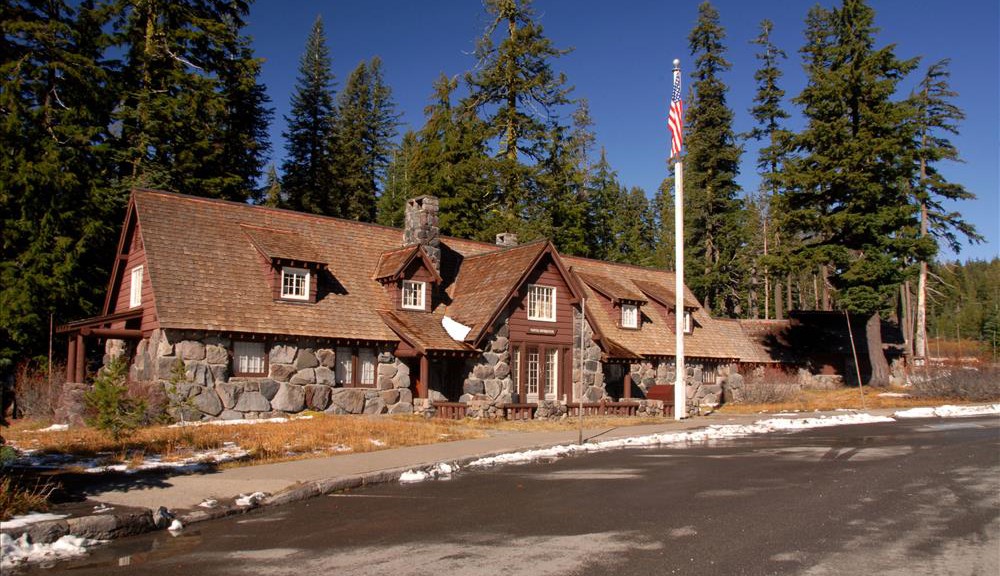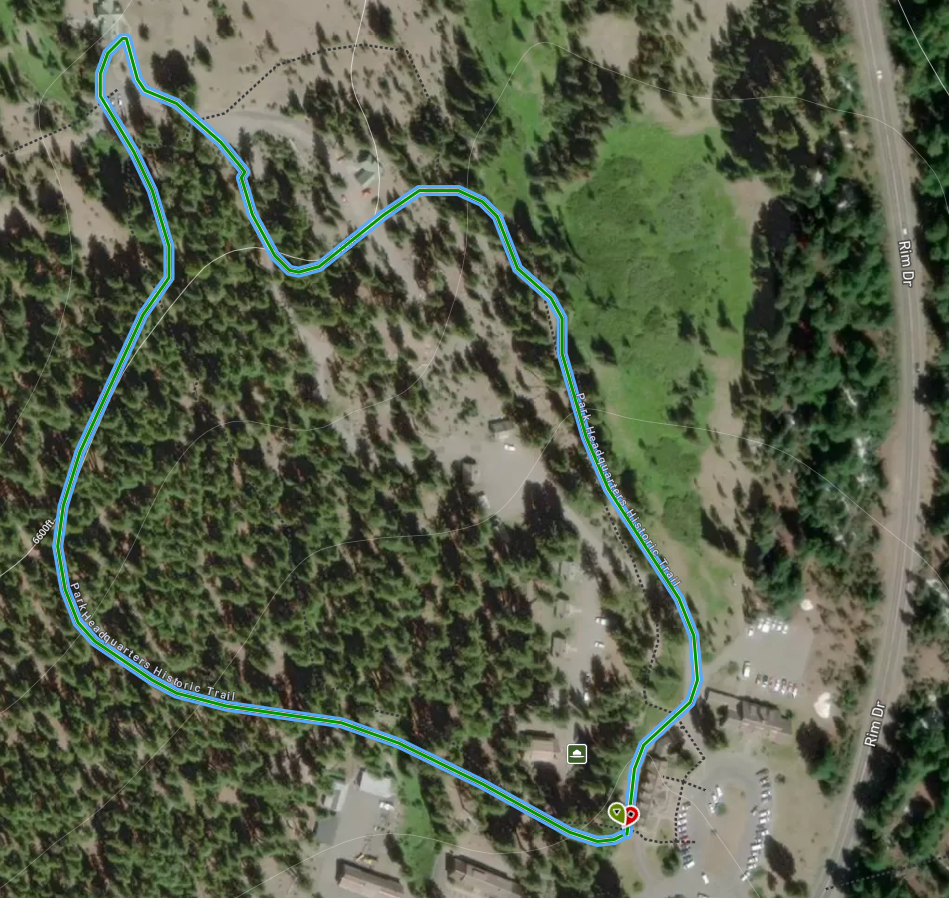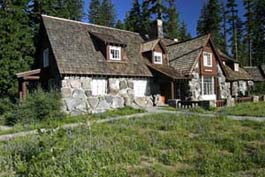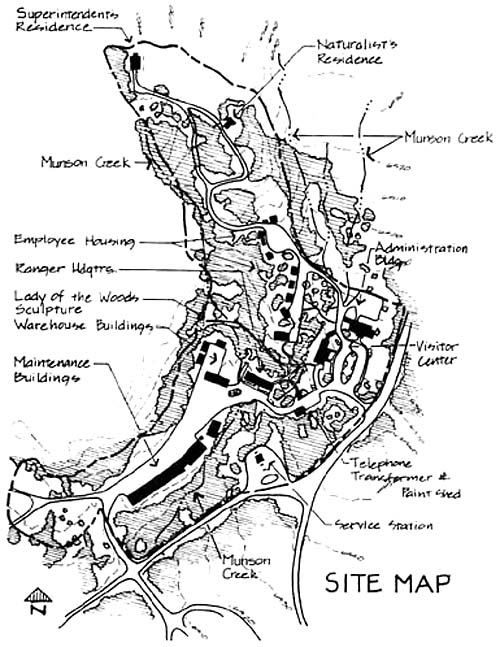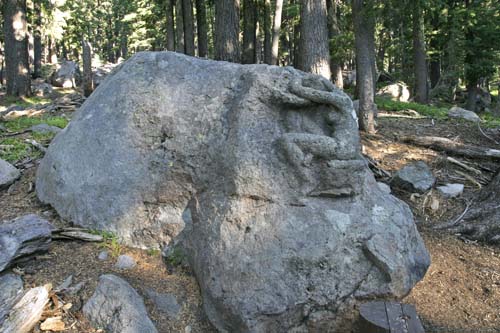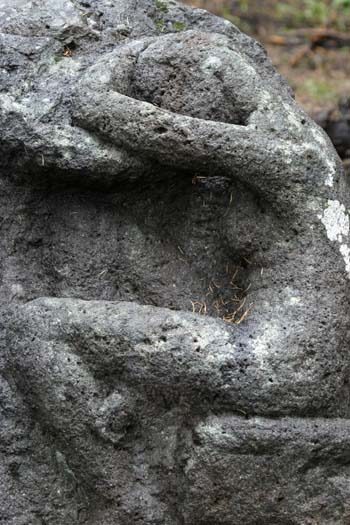Park Headquarters Historic Trail – Crater Lake National Park
| Time: 30 minutes
Difficulty: Moderate Length: .3 mi (km) loop Elevation: 6600* – 6445 ft (2012 – 1964 m) |
Trailhead coordinates:
Latitude: N +42° 53.79 or 42.89666 Longitude: W -122° 08.06 or -122.13435 Altitude: 6490 ft (1978 m) |
| Highlight: Historic buildings and landscapes; forest; Munson Creek | |
* Superintendent’s Residence (highest point) Steel Visitor Center (lowest point)
REI Trails Project partners with Crater Lake Institute to produce their trails app. Click the map below, get the app – then come back, we offer more.
Trail Description
|
Steel Visitor Center, facing northwest; the Park Headquarters Historic Trailhead is just to the left and behind this structure, photo by Robert Mutch |
|
Related Vegetation at Munson Valley Headquarters, natural and landscaped – Cultural Landscape Recommendations: Park Headquarters at Munson Valley |
This moderately strenuous trail begins just behind the Steel Visitor Center (formerly the Ranger Dormitory). In just a hundred meters it comes to the Lady of the Woods (see below) in a mountain hemlock forest. The trail then passes by several historic structures (the Munson Valley headquarters is a historic district), and a stream and wet meadow. A self-guided trail pamphlet is available (just in the Visitor Center) which matches up with interpretive markers placed at various points along the trail.
Trailhead location: Behind the Steel Information Center at Park Headquarters
Nature Note: Mountain hemlock forest with open meadows and sparse underbrush characterizes the vegetation of the upper Munson Valley area that the trail moves through. Other trees that may be encountered are Shasta red fir and noble fir. Wood rush is the dominant understory shrub and Scouler’s willow and subalpine fir are found along the creek and in low wet meadows.
Historic Note: Lady of the Woods was carved in 1917, by a member of the YCC crew building the first Rim Drive. See Cultural Landscape Recommendations: Park Headquarters at Munson Valley, for an in-depth explanation of the history of Munson Valley.
Seasonal Information: Expect the trail to be covered in snow from October to early July, however, conditions vary somewhat from year to year. See Crater Lake Current Conditions for more information.
May Key
blue marker – trailhead
01
– Park headquarters administration building
Park Headquarters Historic Trail Elevation Profile
Related Maps
Digital USGS topographic maps (PDF files) – the following maps are relevant to the Park Headquarters Historic trail. See more Crater Lake Institute online USGS digital maps.
| Series | Name | Year | Scale | Contour Interval | File Size |
| USGS 7.5′ | Crater Lake West | 1985 | 1:24,000 | 40 ft | usgs-crater-lake-west-7.5 |
| USGS 30′ x 60′ | Crater Lake | 1989 | 1:100,000 | 50 m | usgs-crater-lake-30-minute |
Munson Valley Historic District site map, Cultural Landscape Recommendations: Park Headquarters at Munson Valley
Lady of the Woods, carved from a volcanic rock, Park Headquarters historic trail photo by Robert Mutch
Lady of the Woods closeup, Park Headquarters historic trail, photo by Robert Mutch
The lasting values of Dr. Bush’s association with the park rest in the “Lady of the Woods.” The true essence of its significance, and the best expression of the attitude with which it should be viewed, seem to me to be most simply and clearly put in Dr. Bush’s own words. Perhaps you will keep them in mind when you come upon this symbol of the inspiration which one man found within the wilderness:
“This statue represents my offering to the forest, my interpretation of its awful stillness and repose, its beauty, fascination, and unseen life. A deep love of this virgin wilderness has fastened itself upon me and remains today. It seemed that I must leave something behind …. if it arouses thought in those who see it, I shall be amply repaid. I shall be satisfied to leave my feeble attempt at sculptural expression alone and unmarked, for those who may happen to see it and who may find food for thought along the lines it arouses in them individually. It would be sacrilege to assign a title and decorate it with a brass plate.” (Monroe, 1922).
(Biographical note: Dr. Earl Russell Bush, born in 1886, received his M. D. degree from the Indiana University School of Medicine in 1909. He practiced medicine in Indianapolis, Indiana, for a few years prior to World War I. After that war, during which he served as a member of the Medical Corps, he reentered government service, becoming Regional Medical Officer, U. S. Veterans’ Bureau, Cincinnati, Ohio. In January, 1930, he became Associate Medical Director, Western and Southern Life Insurance Company.
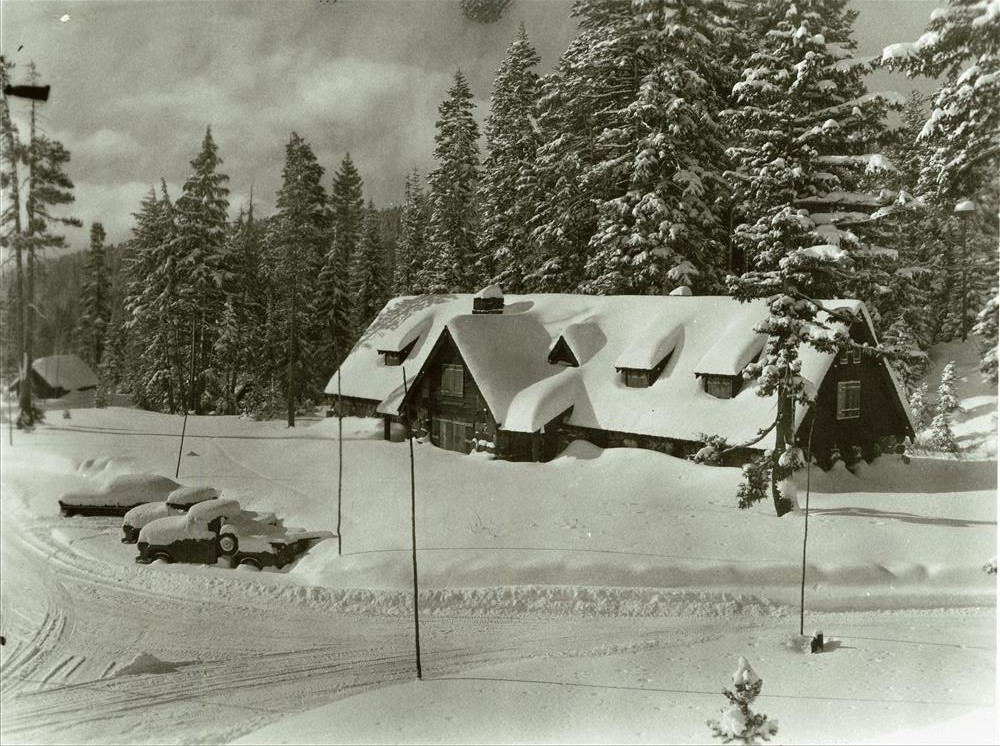
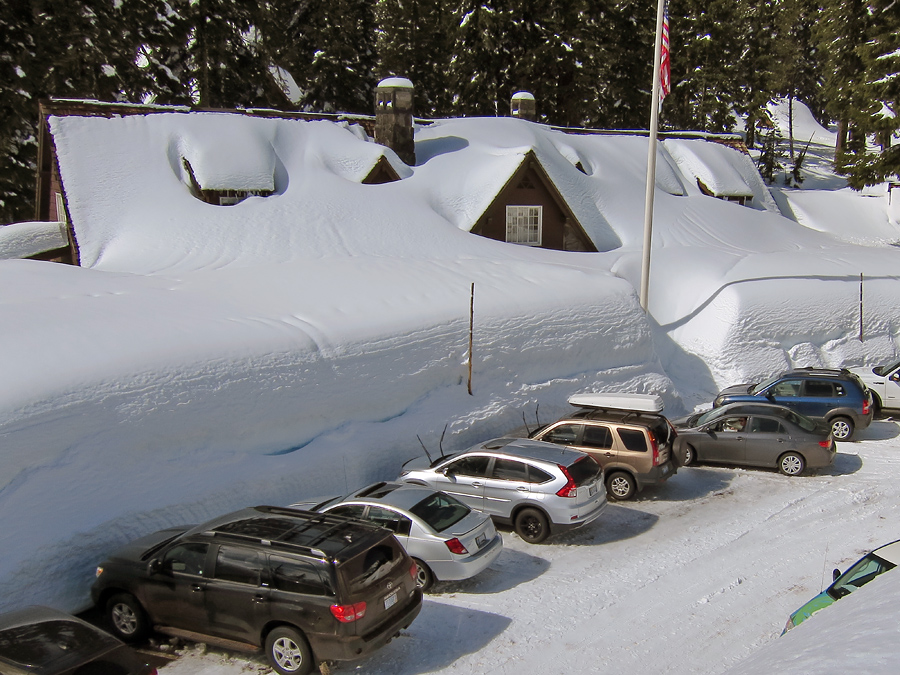
Other pages in this section
- Pacific Crest Trail
- Anderson Bluffs Trail
- Anne Creek Canyon Trail
- Anne Springs Cutoff Trail
- Bald Crater Loop Trail
- Bert Creek Trail
- Boundary Springs Trail
- Castle Crest Wildflower Trail
- Cleatwood Cove Trail
- Crater Peak Trail
- Discovery Point Trail
- Dutton Creek Trail
- Fumarole Bay Trail
- Garfield Peak Trail
- Godfrey Glenn Trail
- Lightning Spring Trail
- Llaos Hallway
- Mount Scott Trail
- Pinnacles Valley Trail
- Plaikni Falls Trail
- Pumice Flat Trail
- Stuart Falls Trail
- Sun Notch Trail
- Union Peak Trail
- Watchman Peak Trail
- Wizard Island Summit Trail
- Hiking Rules and Regulations
- Best Trails at Crater Lake
- Pacific Crest Trail
- Anderson Bluffs Trail
- Anne Creek Canyon Trail
- Anne Springs Cutoff Trail
- Bald Crater Loop Trail
- Bert Creek Trail
- Boundary Springs Trail
- Castle Crest Wildflower Trail
- Cleatwood Cove Trail
- Crater Peak Trail
- Discovery Point Trail
- Dutton Creek Trail
- Fumarole Bay Trail
- Garfield Peak Trail
- Godfrey Glenn Trail
- Lightning Spring Trail
- Llaos Hallway
- Mount Scott Trail
- Pinnacles Valley Trail
- Plaikni Falls Trail
- Pumice Flat Trail
- Stuart Falls Trail
- Sun Notch Trail
- Union Peak Trail
- Watchman Peak Trail
- Wizard Island Summit Trail
- Hiking Rules and Regulations
- Best Trails at Crater Lake
